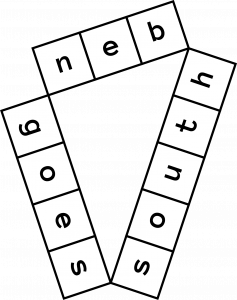
NEBgS Toulouse - Geo-Bio-sourced Materials
GMT+1
January 28th
14:00
Introduction
Session 1
The soil sector
14:20
Intervention
The soil sector in Midi-Pyrénées
ENSA Toulouse, Professor at School of Architecture
14:30
Intervention
Earthen architecture in Portugal. Traditional constructive cultures and contemporary architecture
University of Porto, Assistant Professor at Faculty of Architecture
14:40
Discussion Session
15:20
Virtual Coffee Break
Session 2
The wood sector
15:30
Intervention
15:40
Intervention
Between Portugal’s forestry vocation and the increase of national wood architecture: some reflections
University of Porto, Assistant Professor at Faculty of Architecture
15:50
Discussion Session
16:30
Virtual Coffee Break
Session 3
The stone sector
16:40
Intervention
The stone sector in Midi-Pyrénées
ENSA Toulouse, Professor at School of Architecture
16:50
Intervention
Stereotomy as an opportunity for contemporary structural stone
University of Porto, Researcher at Centre for Architecture and Urban Studies
17:00
Intervention
Vernacular mediterranean architecture stone - Concept - (Skill)craft
University of Zagreb, Lecturer at Faculty of Architecture
17:10
Discussion Session
17:40
Virtual Coffee Break
17:50
Closing speech of the day
ENSA Toulouse, Director of the Architecture Research Laboratory
18:00
Teaching in time of crisis: lessons from the Bauhaus
ENSA Toulouse, Professor at School of Architecture
18:15
Closing speech of the event
University of Porto, Dean of the Faculty of Architecture
18:30
Closing
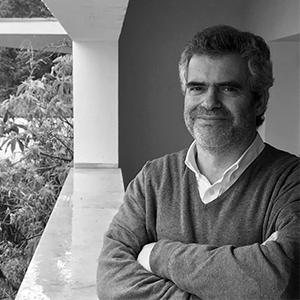
João Pedro Xavier is an architect and full professor at the Faculty of Architecture, University of Porto (FAUP), where he received his degree in 1985, and his Ph.D. in Architecture in 2005. He worked in Álvaro Siza’s office from 1986 to 1999. At the same time, he established his own practice as an architect. Xavier is a member of CEAU’s research teams – Architecture: Theory, Project, History (ATPH) – and – Digital Fabrication Laboratory (DFL). The relationship between architecture and mathematics, especially perspective, is his main research interest. He is the author of the books Perspectiva, perspectiva acelerada econtraperspectiva (Perspective, accelerated perspective and retarded perspective) and Sobre as origens da perspectiva em Portugal (About the origins of perspective in Portugal). He is correspondent editor of the “Nexus Network Journal”, and member of the “European Association for Architectural Education” (EAAE) Council.
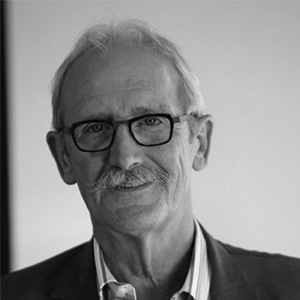
Pierre Fernandez is a DPLG architect (UPA of Toulouse), Doctor of the Ecole Nationale Supérieure des Mines de Paris and HDR (entitled to direct research) by the Institut National Polytechnique de Toulouse, attached to the Doctoral School TESC (Time, Spaces, Societies, Cultures), and professor of first class of the Schools of Architecture.
After ten years of architectural and urban project management in Brazil, Ivory Coast and France, he was recruited as a teacher at ENSA Toulouse in 1988 and became director of the GRECO (Research Group on Environment and Design), while at the same time working as a consultant to the project management and as an assistant to the contracting authority in the field of energy and environment.
Very involved in the institutional life of the institution, he successively held the positions of President of the CPR, President of the Scientific Council and then President of the Board of Directors, before being appointed Director of ENSA Toulouse in 2006. At the end of this first mandate, he was seconded to the French Ministry of Foreign Affairs in 2010, as Attaché for Cooperation and Cultural Action and then as Deputy Director of the French Institute of Brazil. Returning to ENSA Toulouse as a professor in 2014, he was partially made available to the COMUE to create and direct the University of Toulouse’s branch in Brazil for two years, then was mobilised in 2016 as Director of International Relations at ENSA Toulouse. Pierre Fernandez was appointed Director of the Toulouse National School of Architecture as of September 1, 2017. His mandate, proposed by the Ministry of Culture and voted unanimously by the Board of Directors of ENSA has then been renewed for a period of 3 years from September 2020.
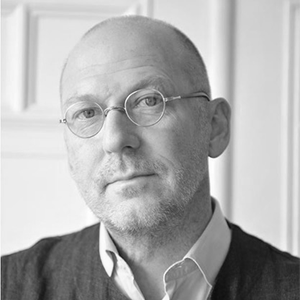
Rémi Papillault is an architect from Paris School of Architecture with specialization on heritage building, PhD on urbanism from Paris Institute of Urbanism, PhD in theories of town planning from EHESS Paris.
As a town planner, he has done projects on heritage site like the Plan of preservation of various historical cities in France like Toulouse, Mirepoix, Lavelanet, Castres, Pierrefonds, and on the historical Toulouse le Mirail from Candilis, Josic, Woods.
As an architect, he has built a Museum of Modern and Contemporary Art in Toulouse, and designed many public spaces in various heritage cities.
As a full professor Phd at the Ecole Nationale Supérieure d’Architecture of Toulouse, he teaches in master project and directs the Master Seminar “History and theories of the project.” As a researcher, he has published research and articles mainly on the heritage between city and architecture in the twentieth century, around the project of Léon Jaussely for Barcelona, of Candilis, Josic and Woods for Toulouse Mirail and Le Corbusier for Chandigarh, Índia.
He is the director of the collection « architectures » at the University Press of Midi, France.
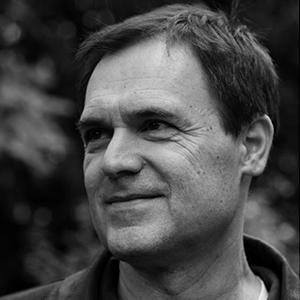
Laurent Gaudu is an architect and professor at the National School of Architecture of Toulouse where he obtained his degree in 1988.
As an architect, he is a founder and partner of the 360º architectural firm which is active in the Occitanie region through competitions for public interest programs with a predilection for projects in high mountains where the dimensions of energy autonomy and constructive speed are preponderant.
As a teacher, he is responsible for a project workshop in the master’s program “constructive thinking”. The pedagogy is based on the constructive hypothesis of a single material for the project with the objective of highlighting emerging typologies without formal preconceptions. He also teaches a series of lectures entitled “From matter to idea”.
As a member of the Research Laboratory of Architecture (LRA), he participates in the research of the partnership chair: Resources / Tradition / Innovation.
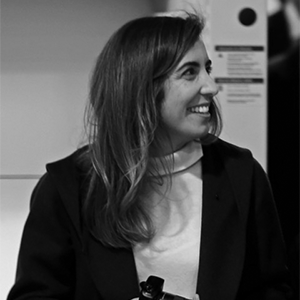
Ana Isabel Costa e Silva (1974) is an architect (FAUP 1998). She studied architecture at FAUP (Portugal) and at IUAV (Italy). Master’s in Urban Planning and Design (FAUP/FEUP, 2005) with the master’s thesis titled National Road EN1: Street of the Enlarged City, and PhD in Architecture (2014) with the doctoral thesis entitled Wood in Architecture: Constructive Practices between late 19th Century and late 20th century, that focuses on wood architecture and constructive practices, mostly in Portugal.
She has developed professional practice as a collaborator of António Madureira and Álvaro Siza, between 1998 and 2001. At the same time, she established her own practice as an architect.
Currently, she is an Assistant Professor at FAUP, in the scientific area of Construction Technology, in the course Building Construction 3 and the head of the course Construction of Wooden Architecture. The teaching activity, particularly the one related with practical exercises, workshops, and summer schools, has been working on the relationship between drawing, material, and architectural language.
She is a researcher at the Center for Studies in Architecture and Urbanism (CEAU_FAUP), in the Atlas da Casa (AdC) research group.
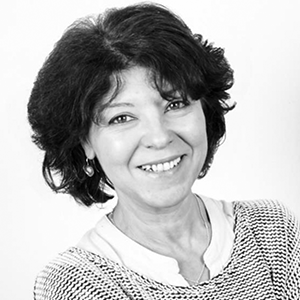
Meriem Bekkoucha is an architect and professor at National School of Architecture of Toulouse where she graduated in 1988.
As an architect, she is a founder and partner of the 360º architectural firm, which is active in the Occitanie region through competitions for public interest programs with a predilection for projects in protected natural sites where the landscape and architectural dimensions are closely intertwined.
As a teacher, she is responsible for a project workshop in the master’s program “constructive thinking”. The pedagogy is based on considering the physical context as a tectonic hypothesis. The aim is to initiate the creation of an “architectural language” of the project through the development of a constructive thought on its structure and materiality, taking into account all physical and climatic phenomena. She also teaches a series of lectures entitled “From idea to matter”.
As a member of the Research Laboratory of Architecture (LRA), she participates in the research of the partnership chair: Resources / Tradition / Innovation.
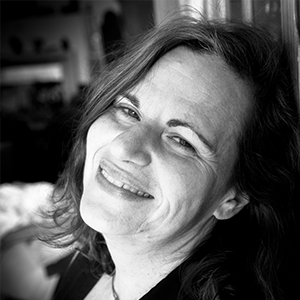
Clara Vale is an architect by University of Porto (1991), specialized in building physics and Portuguese 20th-century construction history. She holds an MSc in Building Construction from the Faculty of Engineering (1999) and a Ph.D. in Architecture (2012). Currently, she is an Assistant Professor at the Faculty of Architecture and researcher at CEAU.
Member of the Board of ‘Architects without Borders – Portugal’, ‘Portuguese Society for The Study of Construction History’ and ‘Portuguese Association for the Urban Rehabilitation and Heritage Protection’.
Research focus: 20th Century Construction History; Legislation; Vernacular Architecture; Earthen Architecture; Sustainability; The social role of architecture; Emerging technologies applied to architecture and construction; Rehabilitation and reuse. Supervisor of more than 50 Master’s dissertations and 3 ongoing Ph.D. thesis. She is the co-author of four books and the author or co-author of more than fifty other publications.
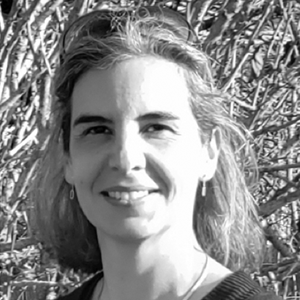
Nathalie Tornay is an architect. She received the PhD from civil engineering school (INSA) and architecture school (ENSA), France, in 2011, in the fields of the building materials choice. She is an assistant professor in ENSA Toulouse in the field of Science and Technology for Architecture. She is co-director of Laboratory of Research in Architecture (LRA), consolidation of scientific activities at ENSA Toulouse. Her research interests include building materials, architectural and urban sustainability.
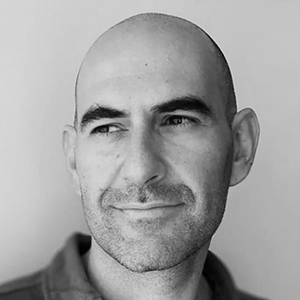
Pedro de Azambuja Varela is a DFL researcher at CEAU/FAUP. While interested in mathematics and built form, graduates in Architecture at FAUP in 2006.
In 2012, he created the company AZVAvisuals where his knowledge in graphic and web design, programming, image manipulation and advanced 3D modelling and rendering have proven successful.
Pedro de Azambuja Varela takes part in the FCT Investigation Project “Tecnologia Robótica para um Projecto e Construção Não-Standard em Arquitectura”. Following various works developed in the area of algorithmic design, he studies and finishes the first edition of CEAAD (Advanced Studies Course in Digital Architecture) with a grant from Amorim Isolamentos S.A., organized by FAUP and ISCTE-IUL. He won a PhD Grant from FCT for a research on rethinking stereotomy with today’s technologies, defending his thesis entitled “Reconstruction of a Stereotomy – for a multi-semantic stereotomic approach” in 2020.
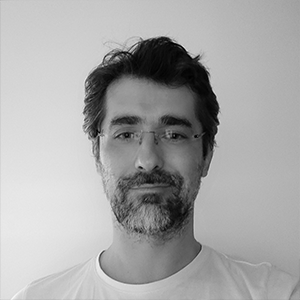
Željko Pavlović is an architect and lecturer at the Faculty of Architecture, University of Zagreb. He received his degree in 2003. In the same year he was employed in the design office of the Croatian architect Tomislav Odak.
Since 2005 he has been working in practice with professor Nenad Fabijanić (Faculty of Architecture, University of Zagreb), with whom he has collaborated for many years on numerous professional, private and public projects, studies and programs. As an associate and co-author, he participates in architectural and urban design competitions. He is also the author of several realized residential private houses, mostly in the Croatian Mediterranean.
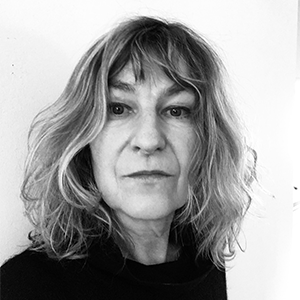
Andrea Urlberger is a professor at École Nationale Supérieure d’Architecture of Toulouse, and a researcher at LRA. She is an art theorist, graduated from the University Paris 8 and holds a PhD in aesthetic, art sciences and techniques. In 1995, she began working in the field of digital art and urban space. Her doctoral thesis (2001) focused on the transformation of cities and on digital art, mobility and geolocation. Her research habilitation (2016) focused on the convergence of design (Otl Aicher and the Hochschule für Gestaltung Ulm) and architecture (Günter Behnisch and Frei Otto) in the olympic complex of Munich, and political changes in 1972. She has directed and co-directed several research programs. She worked on the Bauhaus and organized a symposium in Toulouse to celebrate the 100th year of the Bauhaus. Her main publications are Parcours artistiques et virtualités urbaines (2003), Habiter les aéroports (2012), 1972, Arts, territoires et terrorisme (2018).